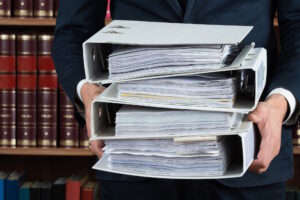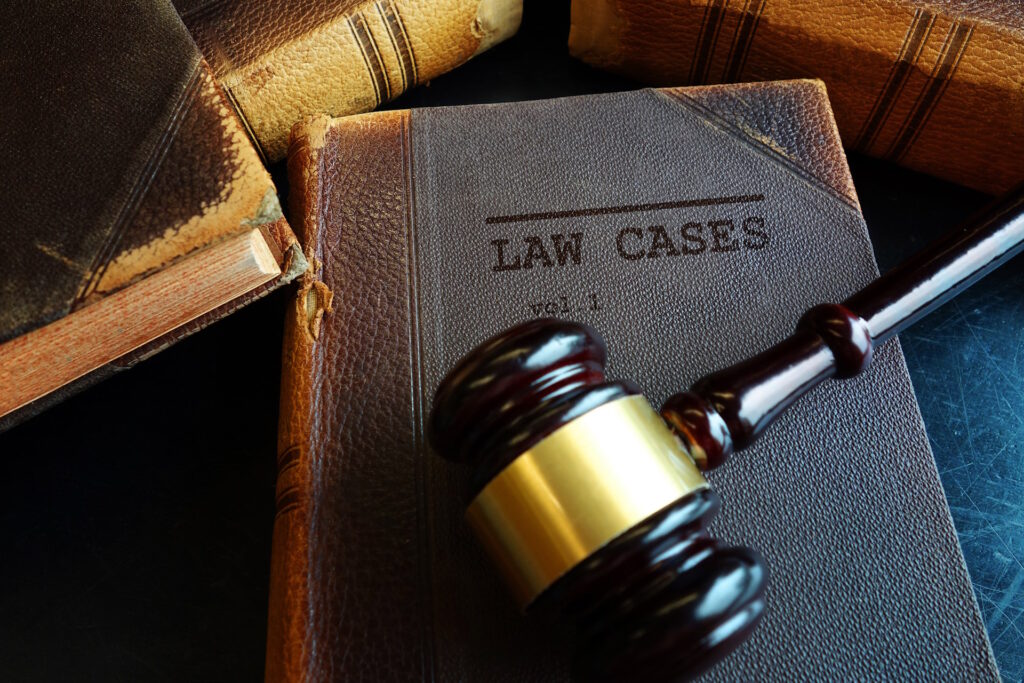So who’s gonna pay for all of this? When awarding transcript costs, courts will consider whether a deposition was necessary to the case.
The calculus that goes into deposing a witness can involve much more than the strength or weakness of a legal claim. At the end of the day, one’s law practice is still a business. Court reporting can be cost prohibitive depending on the circumstances. And contemplations of add-on and expedite fees might derail plans to conduct an otherwise advantageous deposition. So it stands to reason that proper cost management is an unavoidable task in litigation. The question of whether or not a deposition is worth an anticipated cost can be a sticking point for lawyers deciding between an aggressive litigation strategy versus a more reserved, cautious defensive approach. This month’s installment of Devising Depositions will take a look at the point where cost analysis meets a winning case, that important question: Who’s going to pay for all of this?
Federal statute and rules of civil procedure afford prevailing parties the opportunity to recoup certain costs. Deposition transcripts are among such expenses. A look at one recent federal case sheds light on the thought process for courts determining whether or not to grant a request by the prevailing party to tax transcription fees. Although not binding precedent, the memorandum decision, Socha v. City of Joliet, out of the U.S. District Court for the Northern District of Illinois may be an adequate refresher for those considering whether their next deposition could make for a successful motion for costs.
As referenced in Socha, the authority to tax necessary expenses mainly rests in two areas. United States Code § 1920 authorizes courts to tax costs. According to § 1920(2), such taxable costs include “Fees for printed or electronically recorded transcripts necessarily obtained for use in the case[.]” Federal Rules of Civil Procedure 54(d)(1) affords a prevailing party the opportunity to be awarded costs (excluding attorney fees), stating that, “Unless a federal statute, these rules, or a court order provides otherwise, costs—other than attorney’s fees—should be allowed to the prevailing party.”
 As for determining whether deposition transcripts are taxable in a given case, courts will look to the issue of necessity to distinguish from depositions conducted merely for the sake of convenience. In Socha, the plaintiff challenged a request for fees by the defendants on the grounds that some fees were unnecessary. Case precedent identified by the court discussed several interesting conclusions with respect to the issue of necessity. First, the bar to award costs is fairly practical. The court quotes case precedent which acknowledges that, generally speaking, requests for costs are normally denied only upon the occurrence of a penalizing offense by the prevailing party or an inability by the losing party to pay costs. Secondly, a deposition may be considered necessary at the time it was conducted even though the witness is not ultimately called to testify at trial. Finally, depositions don’t have to be indispensable to be considered necessary for the purpose of taxing costs. After considering the extent of Defendants’ justification for invoiced fees, subject to existing local court limitations with respect to reporter rates, the court awarded in part and denied in part Defendants’ request for transcript costs.
As for determining whether deposition transcripts are taxable in a given case, courts will look to the issue of necessity to distinguish from depositions conducted merely for the sake of convenience. In Socha, the plaintiff challenged a request for fees by the defendants on the grounds that some fees were unnecessary. Case precedent identified by the court discussed several interesting conclusions with respect to the issue of necessity. First, the bar to award costs is fairly practical. The court quotes case precedent which acknowledges that, generally speaking, requests for costs are normally denied only upon the occurrence of a penalizing offense by the prevailing party or an inability by the losing party to pay costs. Secondly, a deposition may be considered necessary at the time it was conducted even though the witness is not ultimately called to testify at trial. Finally, depositions don’t have to be indispensable to be considered necessary for the purpose of taxing costs. After considering the extent of Defendants’ justification for invoiced fees, subject to existing local court limitations with respect to reporter rates, the court awarded in part and denied in part Defendants’ request for transcript costs.
Relatedly, it’s also worth noting that case law may present a scenario where those pesky expedite fees could be considered conveniences rather than necessary taxable costs. This means that, even where you win your case, you might be left on the hook to pay. In Fogleman v. ARAMCO (Arabian American Oil Co.), the Fifth Circuit Court of Appeals noted,
“We have previously held that the extra cost of obtaining a trial transcript on an expedited basis is not taxable unless prior court approval of expedition has been obtained or the special character of the litigation necessitates expedited receipt of the transcript. The same reasoning applies to a copy of a deposition obtained on an expedited basis.”
Although Fogleman discusses trial transcripts, it’s not hard to see how similar reasoning could potentially apply to expedited deposition transcripts as well. How frustrating would it be to win a case only to realize you can’t recoup costs because your expedited transcripts were determined mere conveniences rather than taxable expenses? How more frustrating would it be to know that there would be no need for expedited transcripts if you weren’t forced to otherwise rely on a two-week turnaround time as a normal course of business? So what role does a court reporting service play in all of this?
Although court reporting services can’t determine the facts of a case or the strength of a claim, they do have a say on the fees and rates they decide to charge their customers. When asked to tax costs, courts may require an explanation for those higher rates and added fees. Courts might ask the same question you may have been thinking all along when it comes to excess fees: Are they necessary?
That’s a question that only you (or perhaps your client) can answer. However, there is another way. Readback is a remote, non-stenographic deposition service that can help lessen the calculus of deciding whether or not to take a deposition. Readback provides its service with no expedited or added fees. Even more, Readback’s flagship category, Active Reporting, offers premium benefits of certified transcripts in one day, rough drafts in one hour, and access to near-time text during the proceeding, all at low, flat rates. Take a moment to learn more about Readback’s levels of service to see what works best for you.
* Disclaimer: Readback is neither a law firm nor a substitution for legal advice. This post should not be taken as legal opinion or advice.



